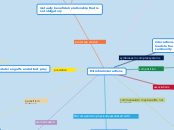Impacts of algae on the sphere
Impact of sphere on algae
Lake Erie Algae Explosion
Cause of Explosion
TURBIDITY (MUDDINESS OF WATER)
Low turbidity occurs when sediments in the
water settle out of the water
Low turbidity means more light
can pass through water
(good for algae)
WINDS
Minimal winds preferred for
greater algal growth
SUNLIGHT
When exposed to long periods of high light intensity,
algal growth increases
HYDROLOGY
Shallow waters are preferred
Thrive in calm, still waters
TEMPERATURE
Increased temperatures preferable for algae
Most often temperatures above 25°C
NUTRIENTS
Increased amounts provided
Phosphorus
Nitrogen
Effect on Species
HUMANS
Negative Effects
A problem for the farmers
they were getting blamed for farming too intensely, they have been “getting more land than we did historically”, stated Benoy.
Water sources; we are restricted to using water from Lake Erie
This incident made getting water less convenient, compared to having tap water and being able to open the tap and see fresh water flowing out
now had to use bottled water for drinking, cooking and bathing purposes
The cyanobacteria called Microcystis destroyed aquatic life
fewer jobs for fishers
Left us with little fish to consume
This explosion affects human body
The blue-green algae is taking over and is being revealed in many of our bodies of waters and is increasing in percentages
Causes neurological problems like seizures and paralysis
Postive Effects
Companies that sell water bottles, will benefit
They will get more profit, and it will make their
economy stronger
ANIMALS
Toxins found in algae can kill species of fish, and even birds surrounding the effected area
Predators of animals that are infected
with the toxins are vulnerable to these
toxins and diseases as well
Toxins continue to infiltrate the different branches
of the food chain
In deep water, the decaying algae and lack of oxygen create a dead zone for many types of fish and wildlife and makes it nearly impossible for survival
PLANTS
The layer of algae blocks any sunlight that plant species like plankton need for photosynthesis
Bibliography
(Click on Hook for bibliography)
Relation to the Spheres
ATMOSPHERE
Warmer temperatures caused by climate change in the atmosphere enhance the growth of the algal blooms
Subtopic
Airborne nutrient pollution caused by burning of
fossil fuels promotes algal growth
When the water evaporates, it carrie toxins into the
atmosphere
LITHOSPHERE
Because the water is toxic, after it evaporates, it falls as acid
rain, corroding the rocks and minerals on land
Nitrogen and phosphorus (nutrient pollution) in the soil (from fertilizers) travel to large bodies of water provides nutrients for algae
HYDROSPHERE
Reduces the amount of dissolved oxygen in the water
Dead algae decay reduces
dissolved oxygen as well
They block sunlight for
plankton below
Provides habitat suitable for algae to thrive
Increase water temperature by absorbing sunlight
Increased evaporation/precipitation due to
increased temperatures
Increases toxicity of water
Pollute large bodies of water
Major Ecological Problem
VIDEO REPRESENTATION
Battling the Bloom:Lake Erie
ALGAE INCREASES TOXICITY
Unusable water supply
Too toxic to bathe in
Undrinkable
Can't use for cooking
Massive fish loss
Decreased amount of dissolved oxygen in the water
Due to disease/infections









